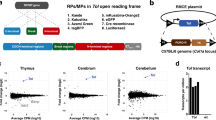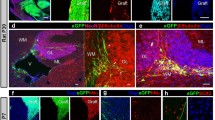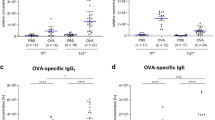Abstract
Recent data of Gorczynski and Steele suggested that male mice made tolerant of an allogeneic strain by the neonatal injection of hybrid lymphomyeloid cells may, by a presumably genetic mechanism, pass on this operationally similar form of hyporesponsiveness to their progeny1,2—the progeny have inherited an acquired characteristic. Their theory, proposed to account for the inheritance of an acquired characteristic, uses a RNA tumour virus that transfers to the spermatogenic germinal epithelium DNA coding for the gene products of the foreign alloantigens. This is possible because the tolerant mouse is chimaeric and contains small numbers of foreign lymphomyeloid cells. Thus, the virus transfers genetic information for transplantation antigens from the chimaeric foreign cells to the germinal epithelium of the host. The progeny of the tolerant male are themselves tolerant because they have received DNA coding for the foreign antigens from paternal sperm. The progeny are tolerant because foreign is now ‘self’. I have now repeated these experiments in a strain combination of rats, DA tolerant of PVG, and found no hyporesponsiveness to the PVG strain in the progeny of tolerant DA males.
This is a preview of subscription content, access via your institution
Access options
Subscribe to this journal
Receive 51 print issues and online access
$199.00 per year
only $3.90 per issue
Buy this article
- Purchase on Springer Link
- Instant access to full article PDF
Prices may be subject to local taxes which are calculated during checkout
Similar content being viewed by others
References
Gorczynski, R. M. & Steele, E. J. Proc. natn. Acad. Sci. U.S.A. 77, 2871–2875 (1980).
Gorczynski, R. M. & Steele, E. J. Nature 289, 678–681 (1981).
Billingham, R. E., Brent, L. & Medawar, P. B. Phil. Trans. R. Soc. B239, 357–414 (1956).
Smith, R. N. & Howard, J. C. J. Immun. 125, 2289–2294 (1980).
Gorczynski, R. M., Macrae, S. & Till, J. E. Scand. J. Immun. 7, 453–465 (1978).
Wilson, D. B., Silvers, W. K. & Nowell, P. C. J. exp. Med. 126, 655–665 (1967).
Dorsch, S. & Roser, B. J. exp. Med. 145, 1144–1157 (1977).
Smith, R. N. & Powell, A. E. J. exp. Med. 146, 899–904 (1977).
Butcher, G. W. & Howard, J. C. Nature 266, 362–364 (1977).
Antczak, D. F., Brown, D. & Howard, J. C. Cell Immun. 43, 304–316 (1979).
Author information
Authors and Affiliations
Rights and permissions
About this article
Cite this article
Smith, R. Inability of tolerant males to sire tolerant progeny. Nature 292, 767–768 (1981). https://doi.org/10.1038/292767a0
Received:
Accepted:
Issue Date:
DOI: https://doi.org/10.1038/292767a0
This article is cited by
-
Can revisionism, in evolutionary biology, help in formulating hypotheses about hominid evolution?
Human Evolution (1992)
-
Influence of paternal immunity on idiotype expression in offspring
Immunogenetics (1985)
-
Further studies on supposed lamarckian inheritance of immunological tolerance
Nature (1982)
Comments
By submitting a comment you agree to abide by our Terms and Community Guidelines. If you find something abusive or that does not comply with our terms or guidelines please flag it as inappropriate.



